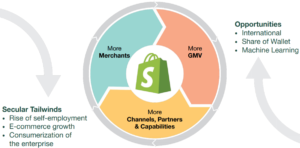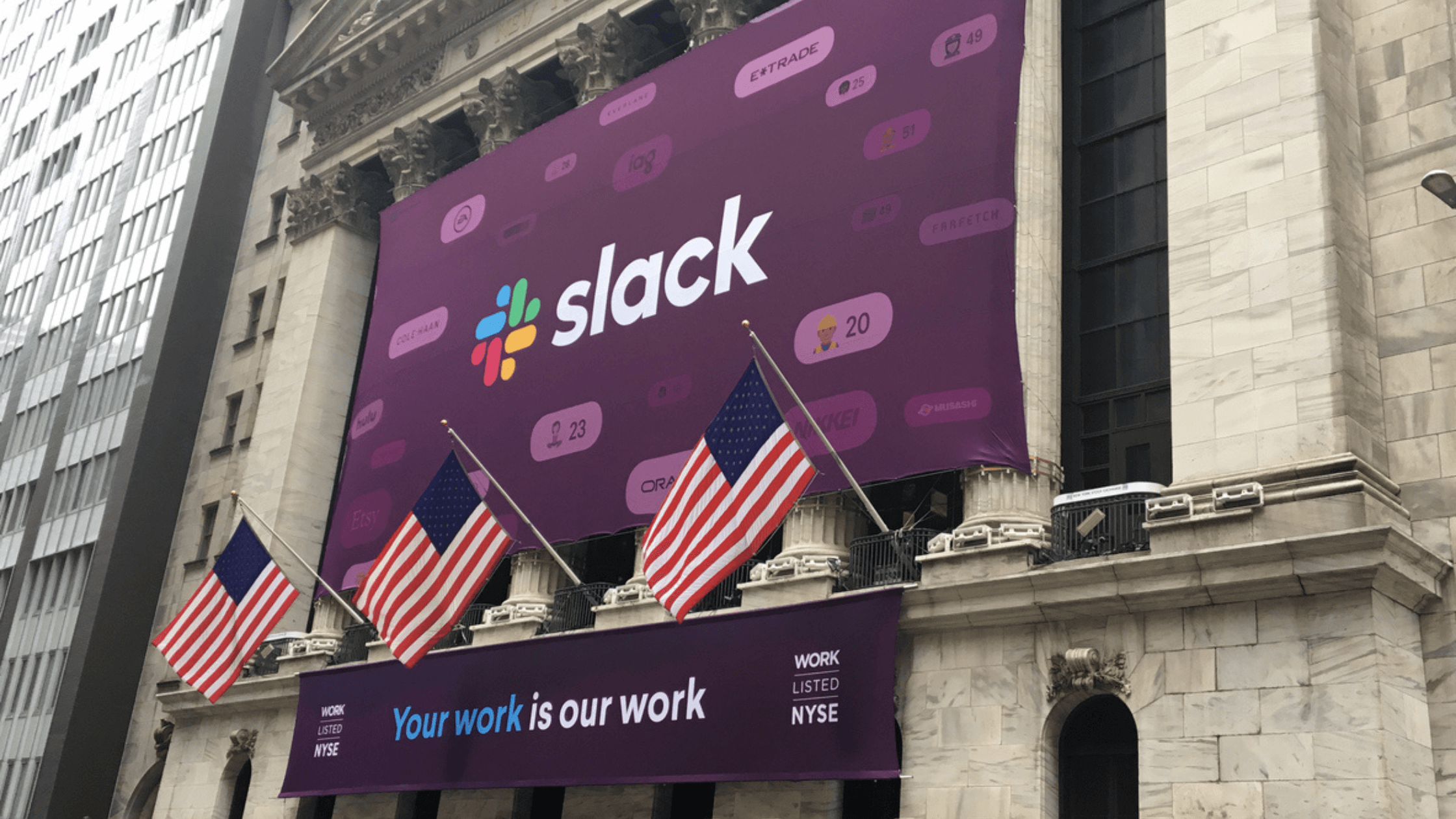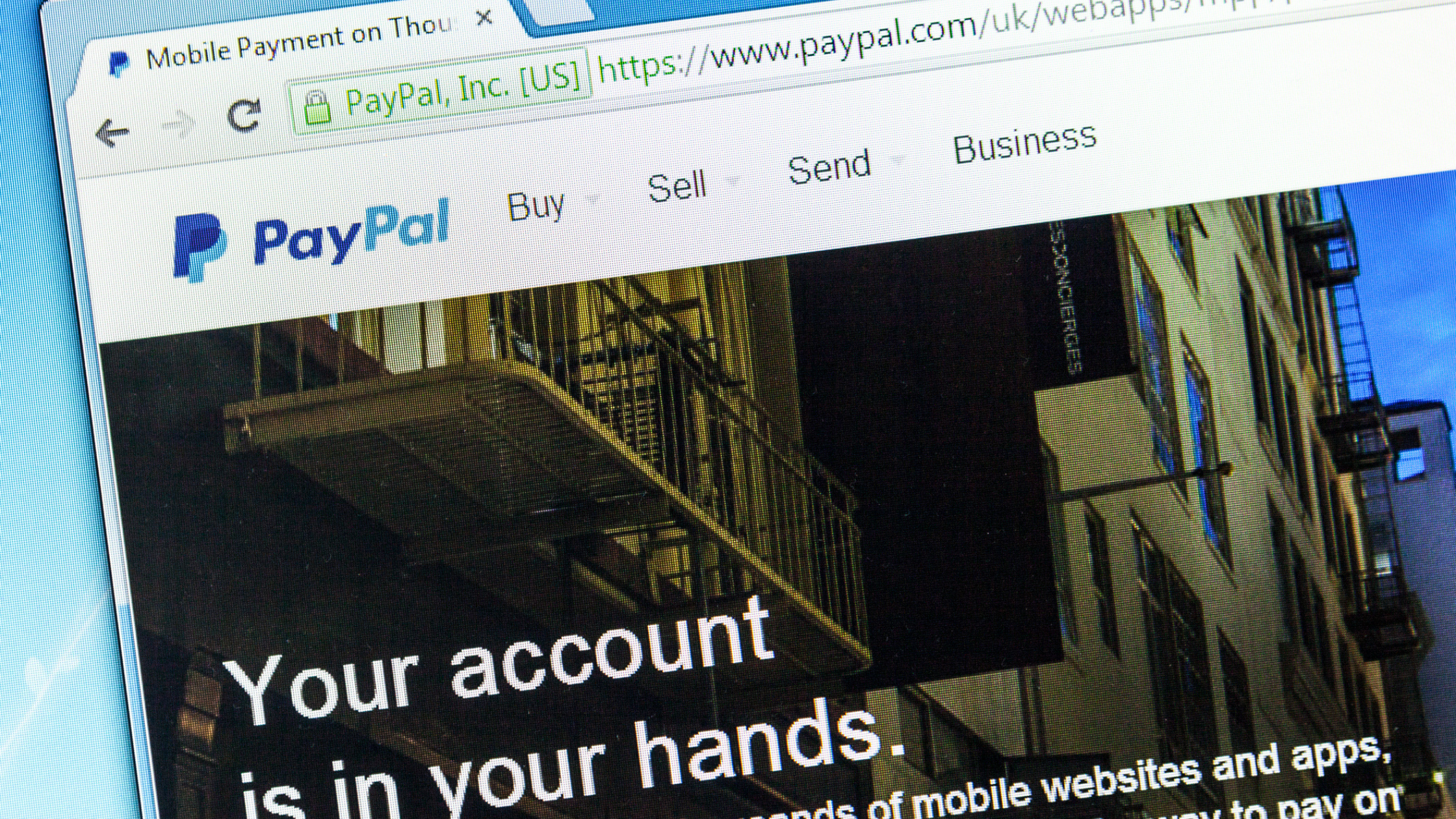Should You Buy Shopify Stock Before a Second Covid-19 Wave?
Shopify Inc (NYSE: SHOP), the e-commerce shopfront provider for businesses, climbed 6.1% higher as investors reassessed the likelihood of increasing e-commerce sales amid another wave of coronavirus infections.
Tim’s Take:
With more than one million merchants in over 170 countries, Shopify is the go-to e-commerce shopfront provider for businesses of all sizes.
Effectively a digital shop builder, Shopify allows businesses to establish an online presence by helping them (as part of a monthly subscription) with everything from marketing to payments and shipping.
Shopify doesn’t just serve small businesses, though. Large businesses, that want to quickly establish an online presence, are also Shopify customers.
Some of its more well-known clients include Tesla Inc (NASDAQ: TSLA), Nestle SA (SWX: NESN) and Kraft Heinz Co (NASDAQ: KHC).
The fact that retailing giant Amazon.com Inc (NASDAQ: AMZN) waved the white flag in 2015 – shutting its own competing e-commerce arm and recommending its merchants move their stores to Shopify – shows you how formidable Shopify’s offering is.
The numbers back it up. Since going public in May 2015, Shopify shares are up around 5,900% from their IPO offering price of US$17 a share.
Its latest quarter saw revenue growth of 97% year-on-year, bringing sales to US$714.3 million. Having 243,000 merchants back in 2015, Shopify now has over one million.
Shopify’s network effect
Meanwhile, global e-commerce sales in 2019 surpassed US$3.5 trillion. That number is bound to get a lot bigger this year given the shift to e-commerce amid Covid-19.
The draw of Shopify is how it has leveraged the “network effect” to grow into the giant it is today. The company has its own name for this; the Shopify Flywheel (see below).

Source: Shopify investor relations Q2 2020 presentation
The more people have used it, the bigger it has grown. Recent partnerships with Walmart Inc (NYSE: WMT) (to help the massive retailer expand its online marketplace) and Facebook Inc (NASDAQ: FB) – to help the social media giant launch Facebook Shops – are perfect examples of the Shopify Flywheel in action.
Yes, Shopify is expensive (trades at 57x price-to-sales) but when has it ever been cheap? Investors should recall the days when everyone labelled Amazon “overpriced” and “expensive”. Look where it is today.
I don’t think the numbers Shopify is posting are going to slow. It consistently beats on both the top and bottom lines when it comes to analyst estimates. Why? It has a great product offering.
We’re willing to pay for quality when we talk about wines or branded luxury goods or holidays abroad. Why are we so averse to paying up when it comes to businesses? If I had to own one e-commerce stock in my portfolio, Shopify would be it.
Disclaimer: ProsperUs Head of Content Tim Phillips owns shares in Shopify Inc.
This material is categorised as non-independent for the purposes of CGS-CIMB Securities (Singapore) Pte. Ltd. and its affiliates (collectively “CGS-CIMB”) and therefore does not provide an impartial or objective assessment of the subject matter and does not constitute independent research. Consequently, this material has not been prepared in accordance with legal requirements designed to promote the independence of research. Therefore, this material is considered a marketing communication.
This material is general in nature and has been prepared for information purposes only. It is intended for circulation amongst CGS-CIMB’s clients generally and does not have regard to the specific investment objectives, financial situation and the particular needs of any specific person who may receive this material. The information and opinions in this material are not and should not be construed or considered as an offer, recommendation or solicitation to buy or sell the subject securities, derivative contracts, related investments or other financial instruments or any derivative instrument, or any rights pertaining thereto. CGS-CIMB have not, and will not accept any obligation to check or ensure the adequacy, accuracy, completeness, reliability or fairness of any information and opinion contained in this material. CGS-CIMB shall not be liable in any manner whatsoever for any consequences (including but not limited to any direct, indirect or consequential losses, loss of profits and damages) of any reliance thereon or usage thereof.























































